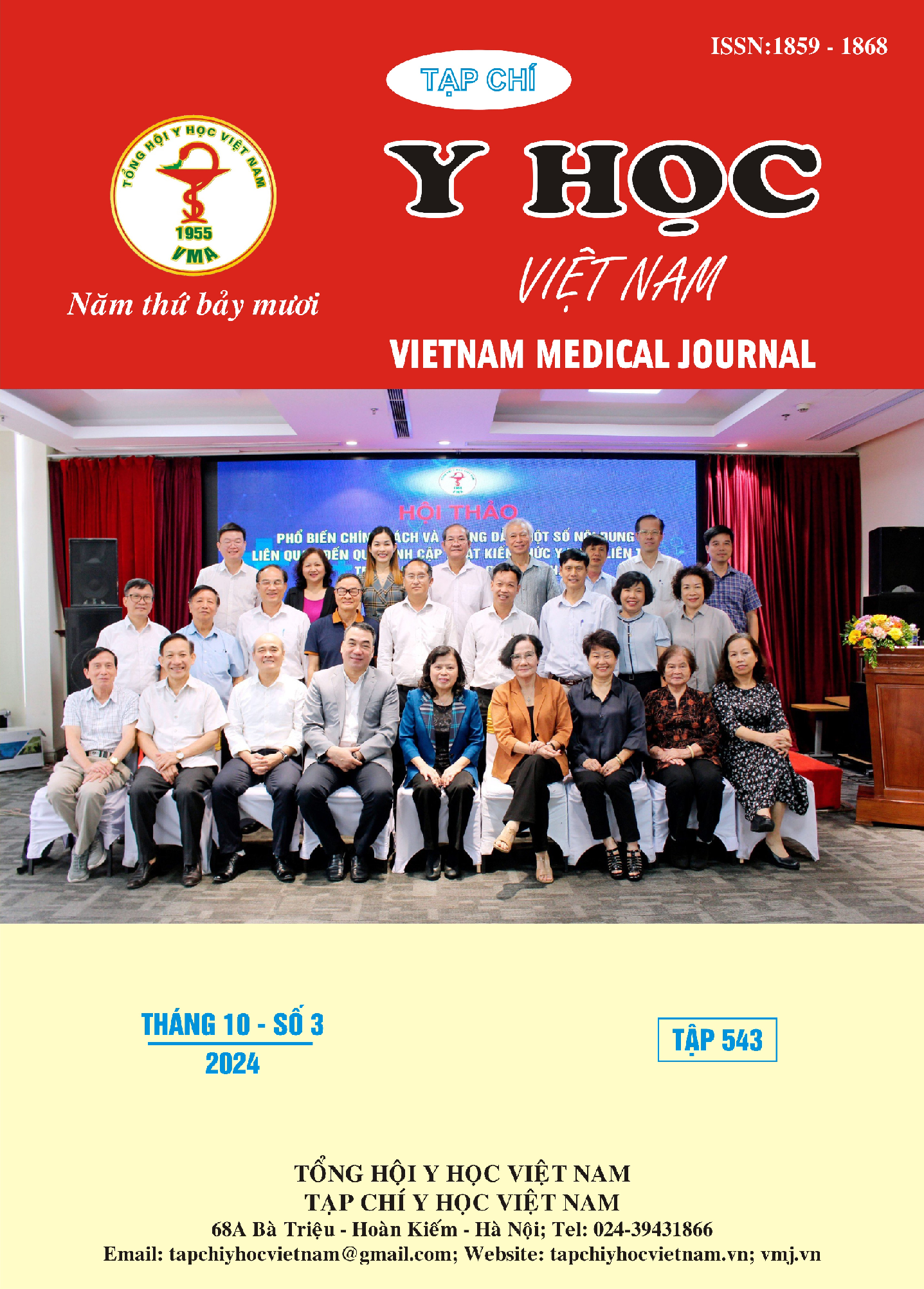EFFETIVENESS OF VENO-VENOUS EXTRACORPOREAL MEMBRANE OXYGENATION (VV ECMO) IN TREATMENT OF CRITICAL COVID-19 IN PREGNANT WOMEN
Main Article Content
Abstract
Pregnant women with critical COVID-19 not responded to standard treatment will have high mortality, unless VV ECMO is implemented. In Vietnam, there hasn’t been study about effectiveness of VV ECMO on pregnant women with critical COVID-19. Objectives: To evaluate the effectiveness of VV ECMO on pregnant women with ARDS due to critical COVID-19. Methods: A retrospective study was carried out to evaluate effectiveness of VV ECMO on all pregnant women with ARDS due to critical COVID-19 who were not responded to standard treatment. Results: Total 17 pregnant women with ARDS due to critical COVID-19 treated VV ECMO (due to not responded to standard treatment) were included in the study with major of pregnant women had age of 30 years or more (range 18 – 40 years) and most fetuses had age of 28 weeks or more (range 22 – 38 weeks). Median time on COVID-19 and invasive mechanical ventilation before ECMO were 9.8 days (range 2 – 22 days) and 0.9 day (range 0.08 – 10 days), respectively. SOFA score and Murray score of pregnant women ranged from 4 to 11 points and from 3.0 to 3.8 points, respectively. Median time on VV ECMO of 20.2 days (1 – 57 days). Mortality rate was 17.6% for pregnant women and 11.8% for fetuses. Common complication on ECMO period were bleeding (12/17). Conclusion: VV ECMO was a high effective treatment for pregnant women with ARDS due to critical COVID-19 who were not responded to standard treatment.
Article Details
Keywords
COVID-19, VV ECMO, ARDS, pregnant women.
References
2. The Vietnam Ministry of Health. Covid-19 Information. 2024 25 July 2024 [cited 2024 25 Jul ]; Available from: https://covid19.gov.vn.
3. Ellington, S., et al., Characteristics of Women of Reproductive Age with Laboratory-Confirmed SARS-CoV-2 Infection by Pregnancy Status - United States, January 22-June 7, 2020. MMWR Morb Mortal Wkly Rep, 2020. 69(25): p. 769-775.
4. Allotey, J., et al., Clinical manifestations, risk factors, and maternal and perinatal outcomes of coronavirus disease 2019 in pregnancy: living systematic review and meta-analysis. BMJ, 2020. 370: p. m3320.
5. O'Neil, E.R., et al., Pregnant and Peripartum Women with COVID-19 Have High Survival with Extracorporeal Membrane Oxygenation: An Extracorporeal Life Support Organization Registry Analysis. Am J Respir Crit Care Med, 2022. 205(2): p. 248-250.
6. Sharma, N.S., K.M. Wille, S.C. Bellot, and E. Diaz-Guzman, Modern use of extracorporeal life support in pregnancy and postpartum. ASAIO J, 2015. 61(1): p. 110-4.
7. Piwowarczyk, P., et al., Challenges and pitfalls of extracorporeal membrane oxygenation in critically-ill pregnant and peripartum women with COVID-19: a retrospective case series. Int J Obstet Anesth, 2023. 53: p. 103625.
8. Holland, C., C. Hammond, and M.M. Richmond, COVID-19 and Pregnancy: Risks and Outcomes. Nurs Womens Health, 2023. 27(1): p. 31-41.
9. El Banayosy, A.M., et al., Extracorporeal life support in pregnant and postpartum women with COVID-19-related acute respiratory distress syndrome. Int J Artif Organs, 2023.46(5): p.289-294.


